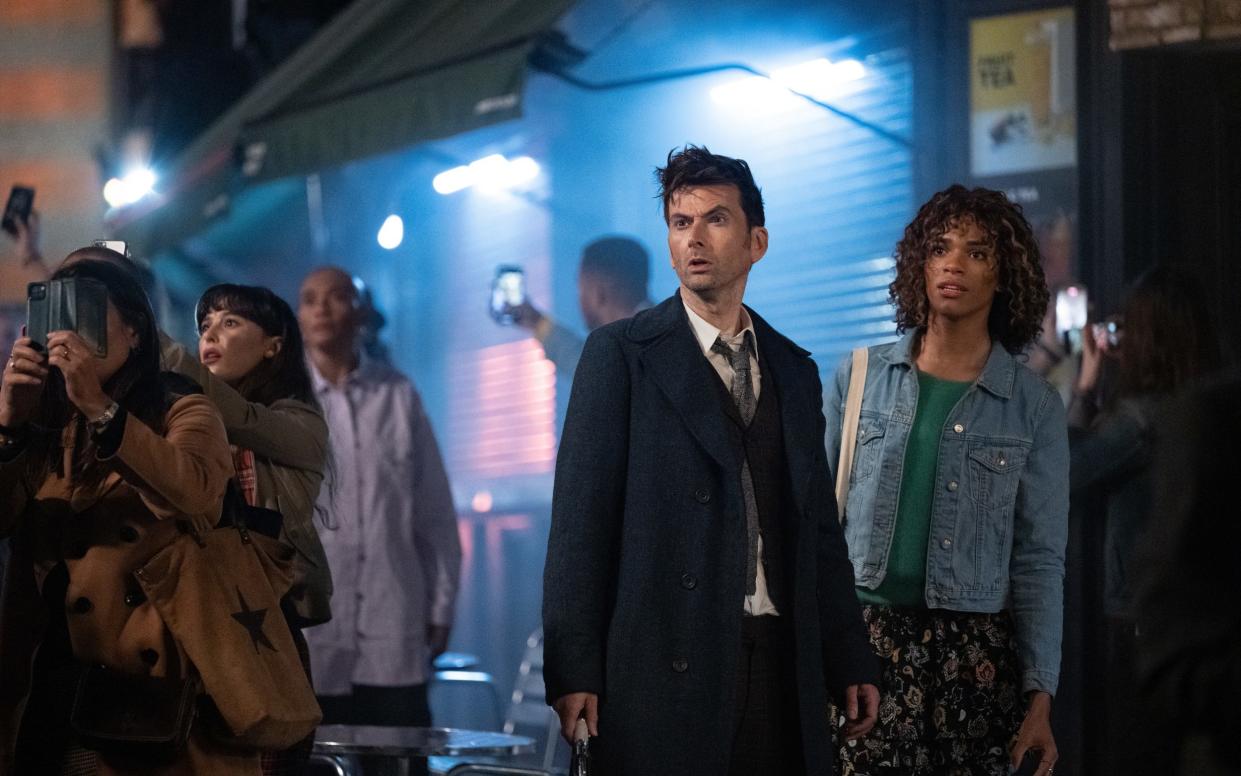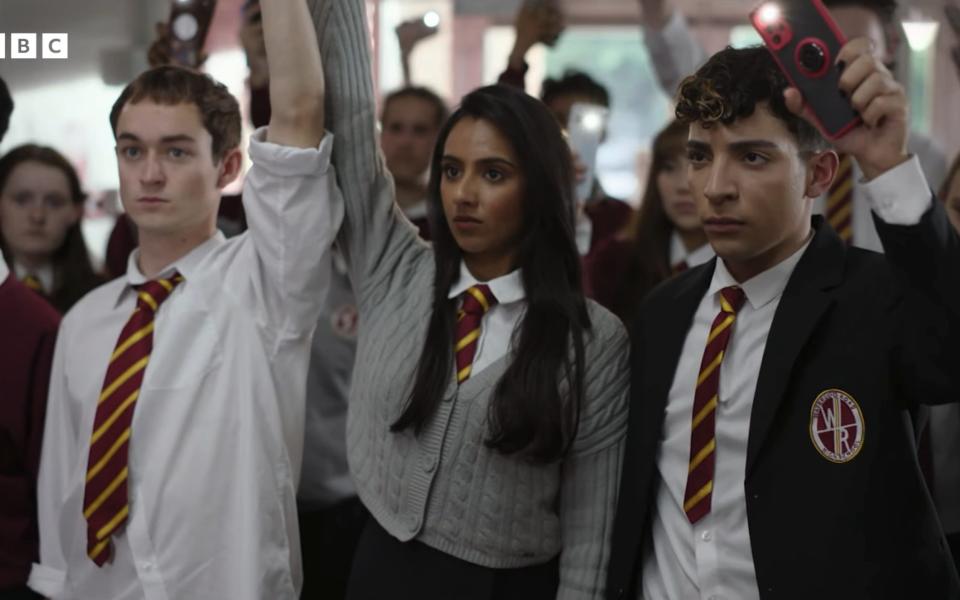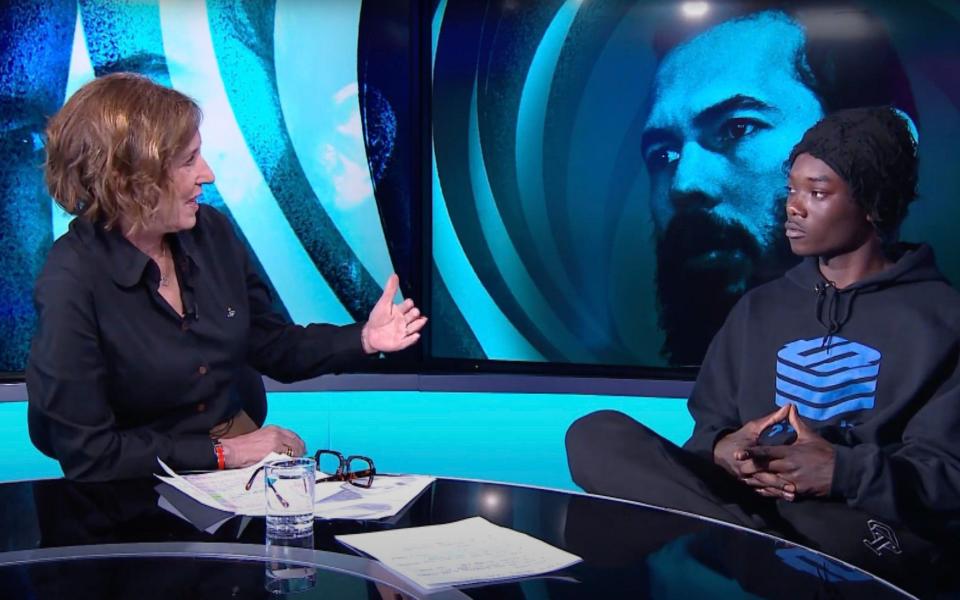BBC feeds viewers a 'diet of woke bias' in breach of its own impartiality rules, campaigners say

- Oops!Something went wrong.Please try again later.
The BBC has been accused of feeding viewers “a steady diet of woke bias” as research suggests the broadcaster has failed to uphold standards in its own impartiality plan.
A survey of the corporation’s news and drama output has exposed bias in coverage of debates over race and gender, campaigners say, while the BBC News website has averaged more than one article per week on the slave trade.
A former culture secretary reacted to the findings by saying that the BBC must be vigilant against the danger of being “captured by fringe interests”.
In recent days, the BBC has come under fire for adding scenes to the Agatha Christie thriller Murder Is Easy to make it an allegory for colonialism.
Meanwhile, new episodes of Doctor Who, which featured a transgender character, implied that the Doctor is gay and discussed whether an alien should have gendered pronouns, have also been a turn-off for some fans.
An article a week about slavery
It comes two years after BBC director general Tim Davie launched a 10-point plan to ensure impartiality. Mr Davie said viewers expected the “highest standards” of “impartiality, accuracy and trust”.
But a review of BBC output by the Campaign for Common Sense suggests the corporation is failing to uphold those standards when it comes to its drama and news output.
The research exposed a preoccupation by BBC News about Britain’s links to the transatlantic slave trade, with articles about the subject appearing online at a rate of more than one a week in 2023.
As of September, the BBC News website had featured 55 separate stories about slavery – ranging from “How a flood led family to discover slavery link” to “Jamaicans call for Gladstone slavery reparations”.
In January, long-running soap opera Waterloo Road featured a plot involving students in open revolt over their school’s links to the transatlantic slave trade.

The episode opens with a girl scrawling the word “racist” across a plaque of her school’s 19th-century founder. Students are later depicted holding banners saying “students against slavery”, and throwing red paint to symbolise the blood of slaves.
The BBC came under criticism the same month for referring to the explorer Sir Francis Drake as a “16th-century slave trader”. BBC London News was forced to amend its online article and delete a tweet with the description after a backlash.
The research also revealed how contested gender issues also featured in BBC news and drama with what the Campaign described as a “woke world view” driving the output throughout the year.
In June, Casualty came under fire for promoting “top surgery” pre-watershed. The episode featured a character discussing top surgery – a mastectomy to remove breast tissue.
In February, BBC Radio 4’s PM programme was forced to apologise for having two transgender activist guests who branded JK Rowling transphobic without any opposing view.
The BBC must be vigilant against fringe interests
Baroness Morgan, the former culture secretary, told The Telegraph: “Given its important role in covering issues affecting all of us, the BBC always needs to remain vigilant against being captured by fringe interests.”
A spokesman for the Campaign for Common Sense said: “This research reveals that, rather than upholding those high standards of impartiality, parts of the BBC continue to peddle a steady diet of woke bias both through the plotlines of popular dramas but also in some of its news coverage.
“The Impartiality Plan, unveiled in the wake of a BBC scandal over trust, was supposed to mark a turning point for the corporation. Instead this research reveals the same old woke world view is still very much in operation. Two years ago, the BBC set itself very high standards to help restore viewers’ trust. It has singularly failed to meet those standards.”
The Campaign for Common Sense, which champions free speech and tolerance, was founded by Mark Lehain, who went on to become an adviser to Nadhim Zahawi when he was education secretary.
Its report goes on to record that in January, BBC News was accused of portraying illegal immigration in a sympathetic light, while in May it interviewed a woman who called for the Government to “pay and support disabled people” to access prostitutes.
The same month, it posted an article exploring Satanism, featuring advocates who claimed it had helped them with “logic and empathy”.
And in June, flagship current affairs programme Newsnight came under fire for interviewing Mizzy, the notorious TikTok prankster, who harassed women at night on train platforms and barged into people’s homes.

Meanwhile children are being exposed to contested subjects such as critical race theory. In September, BBC Newsround featured the views of Kehinde Andrews, the author of The Psychosis of Whiteness, who presents the idea of white privilege as a fact.
Bashir prompted crisis of confidence
The BBC also gave prominence to research by the Museum of London last month which suggested black women were “most likely to die” of the plague in 14th- century London because of “structural racism”. Kemi Badenoch, the Business Secretary and equalities minister, condemned the “inaccurate and alarmist” coverage at the time.
Commissioned by the BBC Board in May 2021, the impartiality plan included thematic reviews covering output to ensure a wide range of views and voices were being reflected.
It also laid out monitoring of what it called impartiality metrics around editorial complaints, staff training and audience perception.
It came in the wake of a crisis of confidence prompted in part by the exposure of Martin Bashir’s deceitful methods of securing an interview with Diana, Princess of Wales.
A BBC spokesman said: “Cherry-picking a handful of examples or highlighting genuine mistakes in thousands of hours of output does not constitute analysis and is not a true representation of BBC content. We are proud that our output seeks to represent all audiences and a range of stories and perspectives.
“Across the entirety of our services there will, of course, be occasions when people disagree with or want to challenge what they have watched or heard and we have well-publicised routes for them to do that.”

